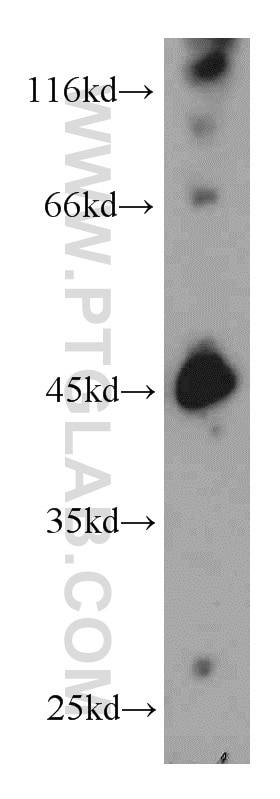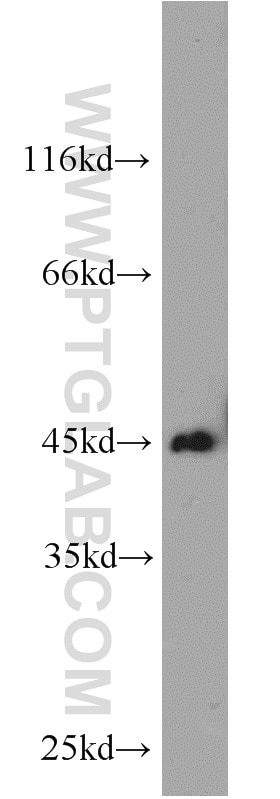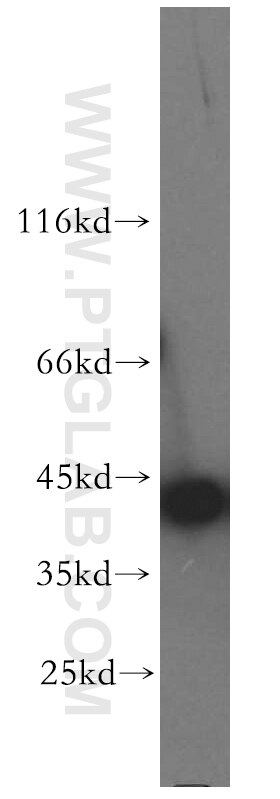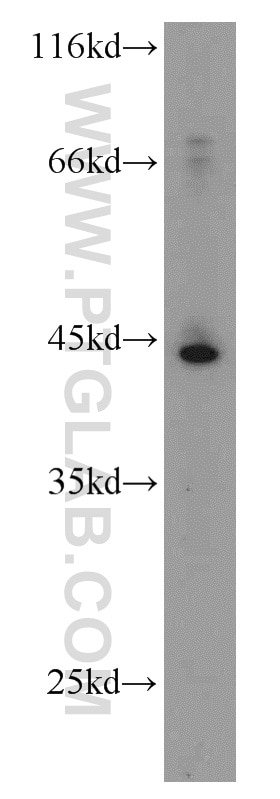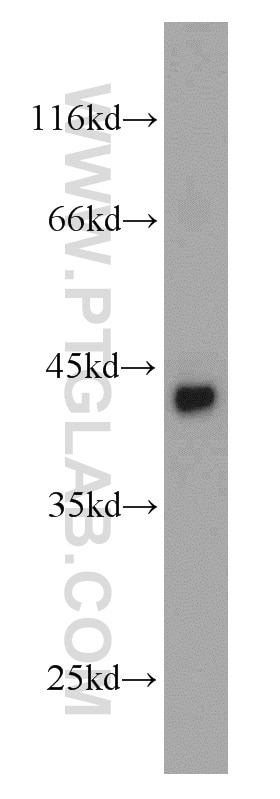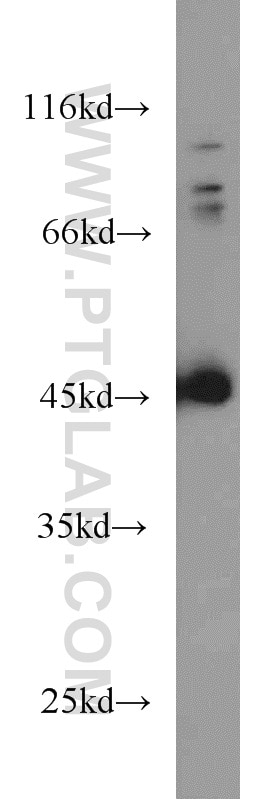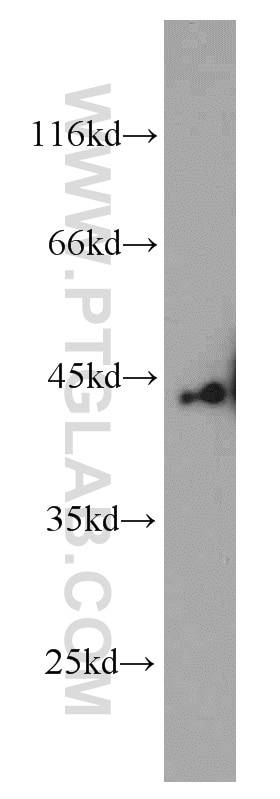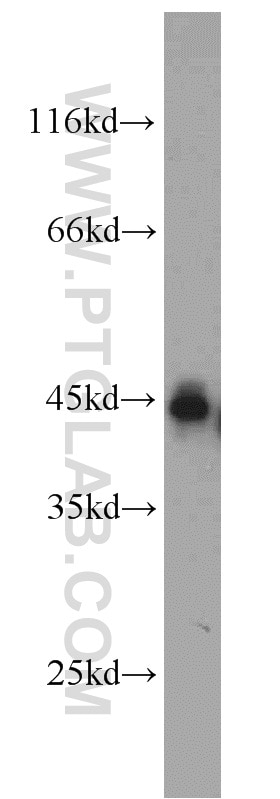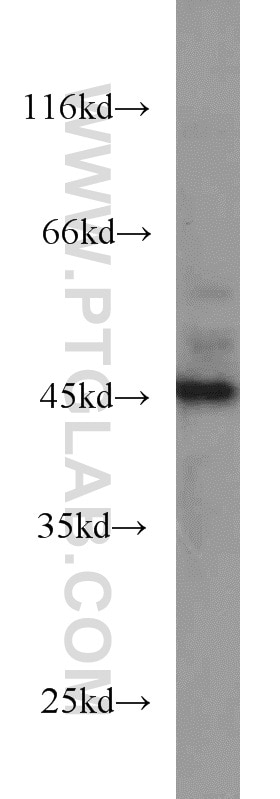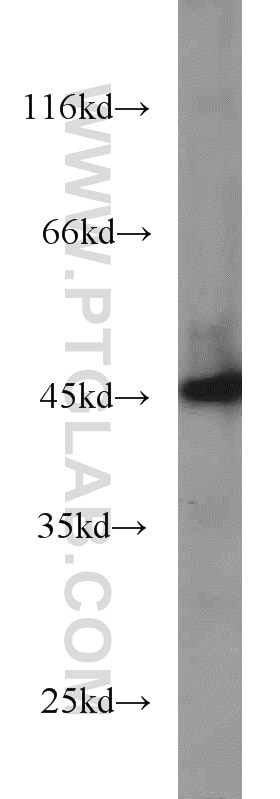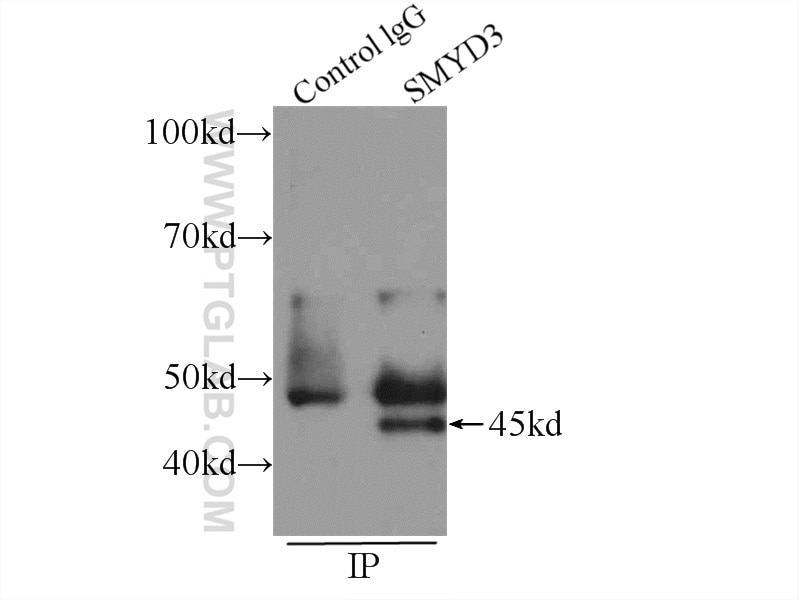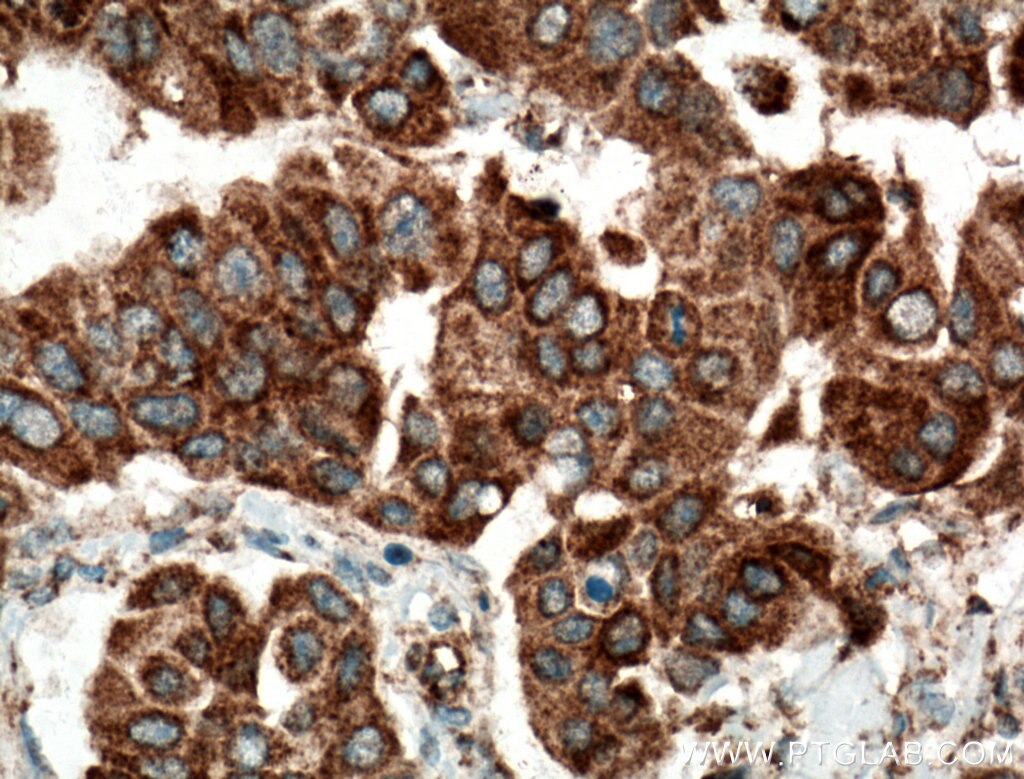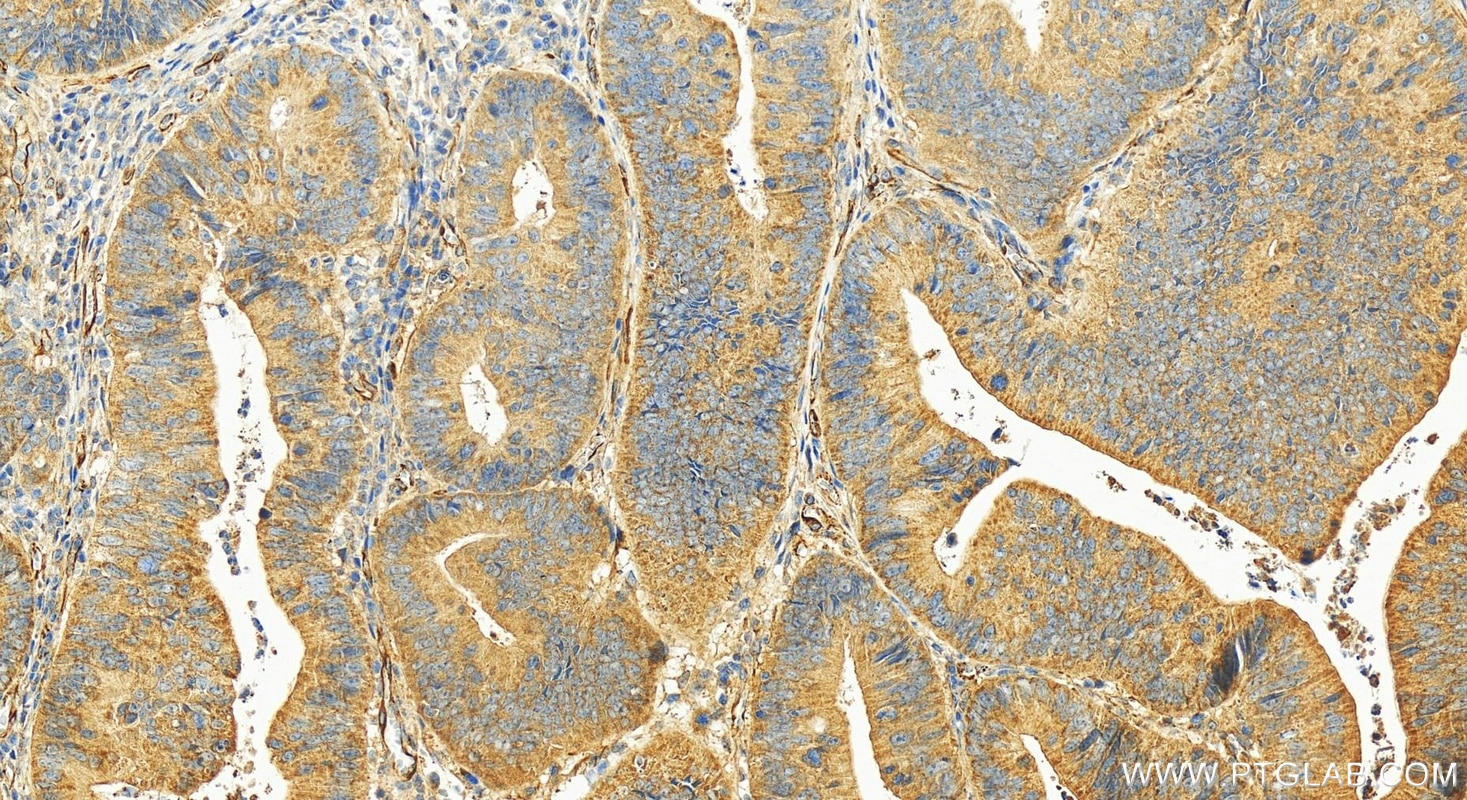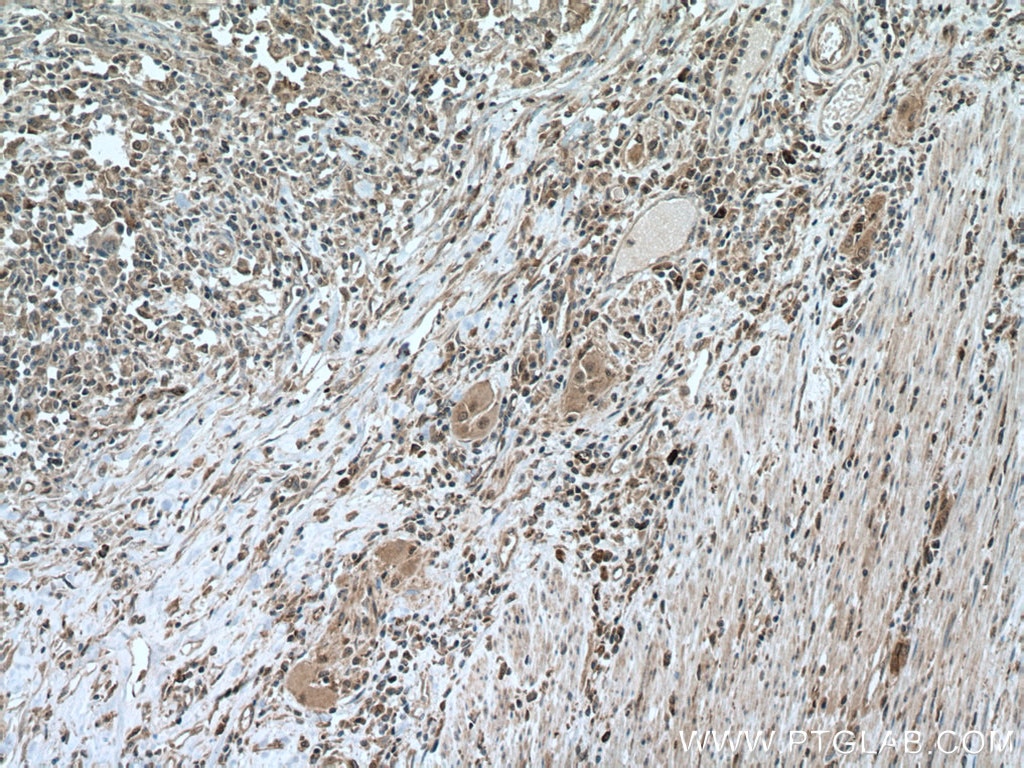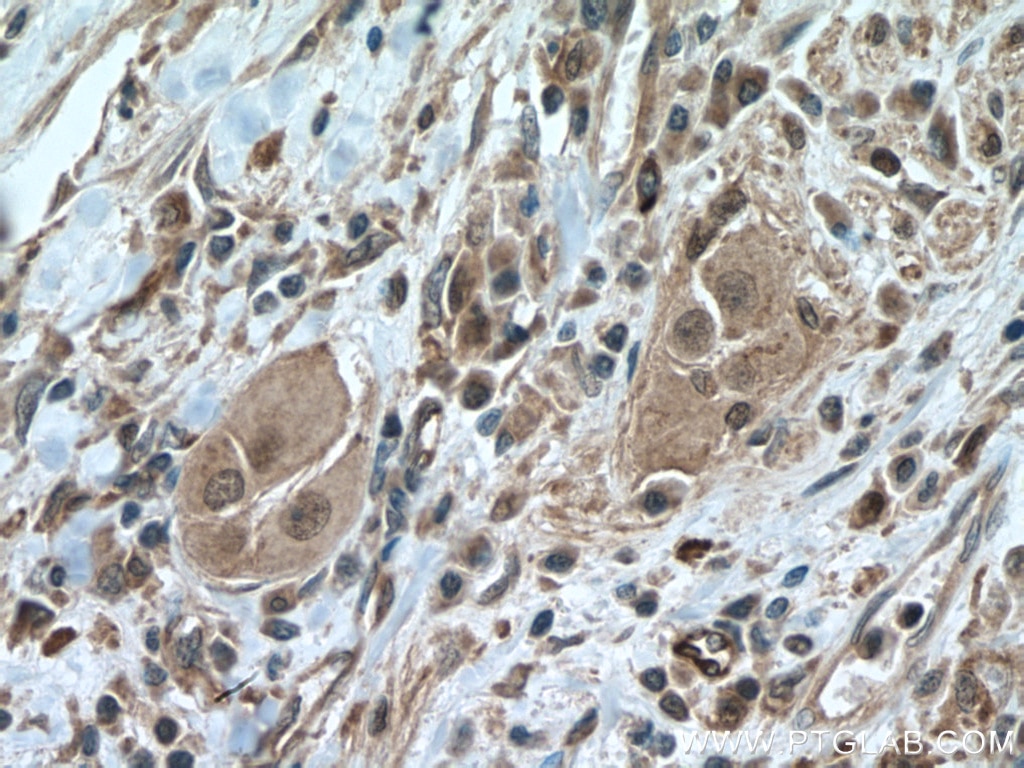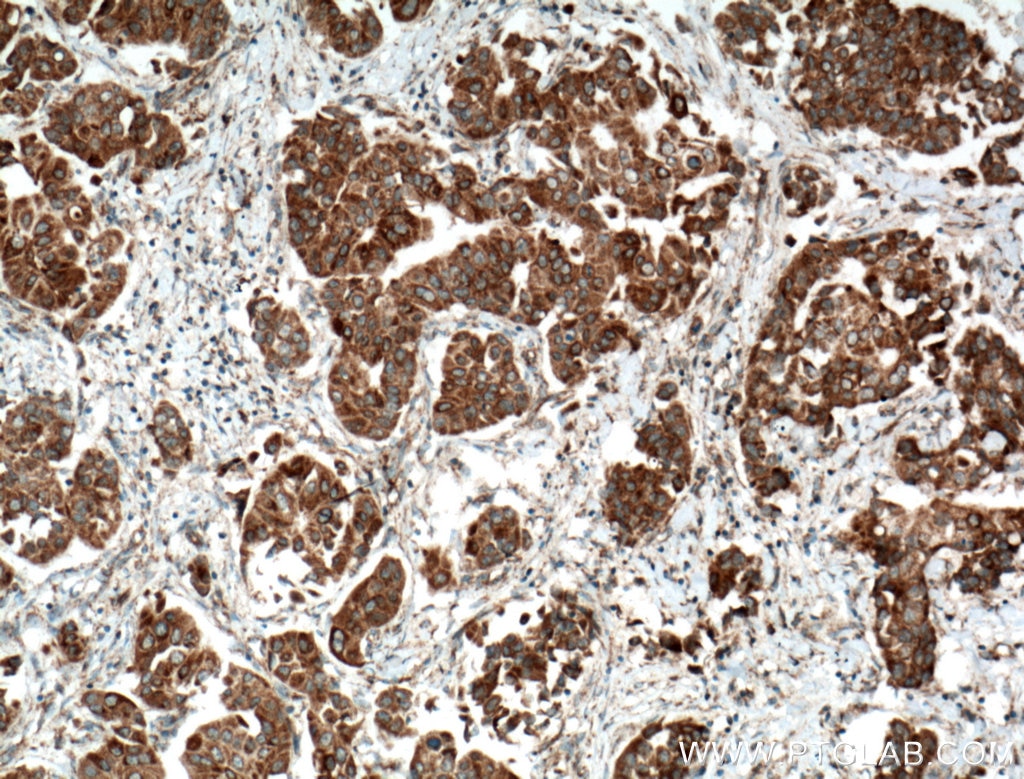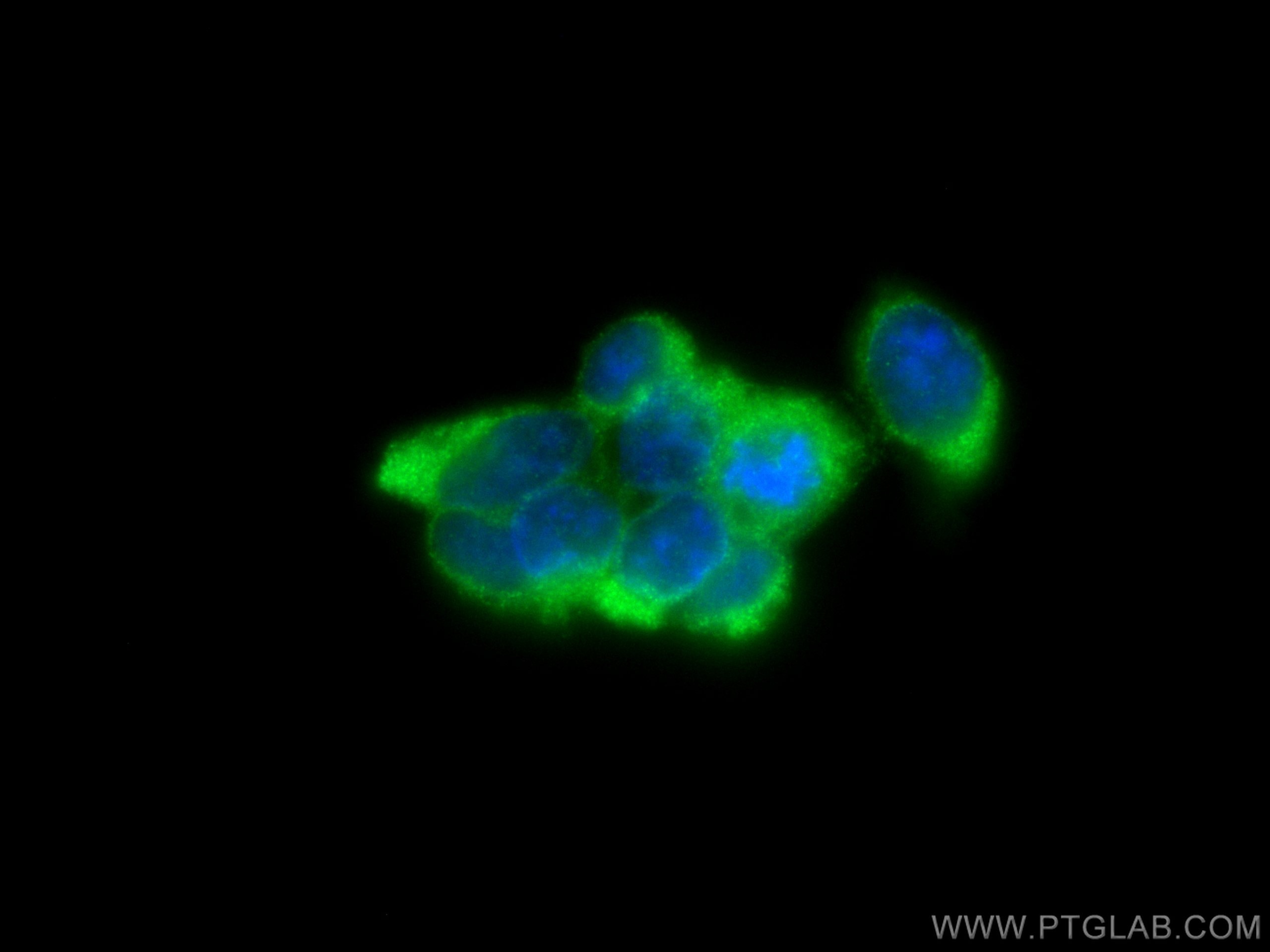Tested Applications
| Positive WB detected in | mouse brain tissue, COLO 320 cells, HeLa cells, HepG2 cells |
| Positive IP detected in | COLO 320 cells |
| Positive IHC detected in | human breast cancer tissue, human colon cancer tissue Note: suggested antigen retrieval with TE buffer pH 9.0; (*) Alternatively, antigen retrieval may be performed with citrate buffer pH 6.0 |
| Positive IF/ICC detected in | HEK-293 cells |
Recommended dilution
| Application | Dilution |
|---|---|
| Western Blot (WB) | WB : 1:500-1:1000 |
| Immunoprecipitation (IP) | IP : 0.5-4.0 ug for 1.0-3.0 mg of total protein lysate |
| Immunohistochemistry (IHC) | IHC : 1:50-1:500 |
| Immunofluorescence (IF)/ICC | IF/ICC : 1:50-1:500 |
| It is recommended that this reagent should be titrated in each testing system to obtain optimal results. | |
| Sample-dependent, Check data in validation data gallery. | |
Published Applications
| KD/KO | See 2 publications below |
| WB | See 8 publications below |
| IHC | See 3 publications below |
| IF | See 1 publications below |
| CoIP | See 1 publications below |
| ChIP | See 2 publications below |
Product Information
12011-1-AP targets SMYD3 in WB, IHC, IF/ICC, IP, CoIP, ChIP, ELISA applications and shows reactivity with human, mouse, rat samples.
| Tested Reactivity | human, mouse, rat |
| Cited Reactivity | human, mouse, rat |
| Host / Isotype | Rabbit / IgG |
| Class | Polyclonal |
| Type | Antibody |
| Immunogen |
CatNo: Ag2624 Product name: Recombinant human SMYD3 protein Source: e coli.-derived, PGEX-4T Tag: GST Domain: 60-428 aa of BC031010 Sequence: MRCSQCRVAKYCSAKCQKKAWPDHKRECKCLKSCKPRYPPDSVRLLGRVVFKLMDGAPSESEKLYSFYDLESNINKLTEDRKEGLRQLVMTFQHFMREEIQDASQLPPAFDLFEAFAKVICNSFTICNAEMQEVGVGLYPSISLLNHSCDPNCSIVFNGPHLLLRAVRDIEVGEELTICYLDMLMTSEERRKQLRDQYCFECDCFRCQTQDKDADMLTGDEQVWKEVQESLKKIEELKAHWKWEQVLAMCQAIISSNSERLPDINIYQLKVLDCAMDACINLGLLEEALFYGTRTMEPYRIFFPGSHPVRGVQVMKVGKLQLHQGMFPQAMKNLRLAFDIMRVTHGREHSLIEDLILLLEECDANIRAS Predict reactive species |
| Full Name | SET and MYND domain containing 3 |
| Calculated Molecular Weight | 428aa,49 kDa; 369aa,42 kDa |
| Observed Molecular Weight | 42-45 kDa |
| GenBank Accession Number | BC031010 |
| Gene Symbol | SMYD3 |
| Gene ID (NCBI) | 64754 |
| RRID | AB_2193981 |
| Conjugate | Unconjugated |
| Form | Liquid |
| Purification Method | Antigen affinity purification |
| UNIPROT ID | Q9H7B4 |
| Storage Buffer | PBS with 0.02% sodium azide and 50% glycerol, pH 7.3. |
| Storage Conditions | Store at -20°C. Stable for one year after shipment. Aliquoting is unnecessary for -20oC storage. 20ul sizes contain 0.1% BSA. |
Background Information
SMYD3,also name as ZMYND1 and ZNFN3A1, belongs to the histone-lysine methyltransferase family.It is a histone methyltransferase that plays an important role in transcriptional regulation in human carcinogenesis. It can specifically methylate histone H3 at lysine 4 and activate the transcription of a set of downstream genes, including several oncogenes (e.g., N-myc, CrkL, Wnt10b, RIZ and hTERT) and genes involved in the control of cell cycle.(PMID: 20957523). It plays an important role in transcriptional activation as a member of an RNA polymerase complex. SMYD3 is frequently overexpressed in different types of cancer cells. It functions as a coactivator of Era and potentiates Era activity in response to ligand. SMYD3 as a new coactivator for ER-mediated transcription, providing a possible link between SMYD3 overexpression and breast cancer. (PMID: 19509295) The common variable number of tandem repeats polymorphism in SMYD3 is a susceptibility factor for some types of human cancer. (PMID:16155568 ) . SMYD3 exists some isoforms with MV 49, 43 and 30 kDa.
Protocols
| Product Specific Protocols | |
|---|---|
| IF protocol for SMYD3 antibody 12011-1-AP | Download protocol |
| IHC protocol for SMYD3 antibody 12011-1-AP | Download protocol |
| IP protocol for SMYD3 antibody 12011-1-AP | Download protocol |
| WB protocol for SMYD3 antibody 12011-1-AP | Download protocol |
| Standard Protocols | |
|---|---|
| Click here to view our Standard Protocols |
Publications
| Species | Application | Title |
|---|---|---|
Acta Pharm Sin B SMYD3-PARP16 axis accelerates unfolded protein response and mediates neointima formation.
| ||
Carcinogenesis miR-124 and miR-203 are epigenetically silenced tumor-suppressive microRNAs in hepatocellular carcinoma. | ||
CNS Neurosci Ther Integration of Methylation and Gene Expression Deciphered Candidate Biomarkers DAB2IP and SMYD3 in Delayed Encephalopathy After Carbon Monoxide Poisoning | ||
Int J Androl Histone methylation is a critical regulator of the abnormal expression of POU5F1 and RASSF1A in testis cancer cell lines. | ||
Cell Physiol Biochem iTRAQ-Based Proteomic Analysis of Neonatal Kidney from Offspring of Protein Restricted Rats Reveals Abnormalities in Intraflagellar Transport Proteins. |
Reviews
The reviews below have been submitted by verified Proteintech customers who received an incentive for providing their feedback.
FH Deyong (Verified Customer) (03-11-2022) | It worked well in the HEK293T cells with human SMYD3 overexpression.
|

